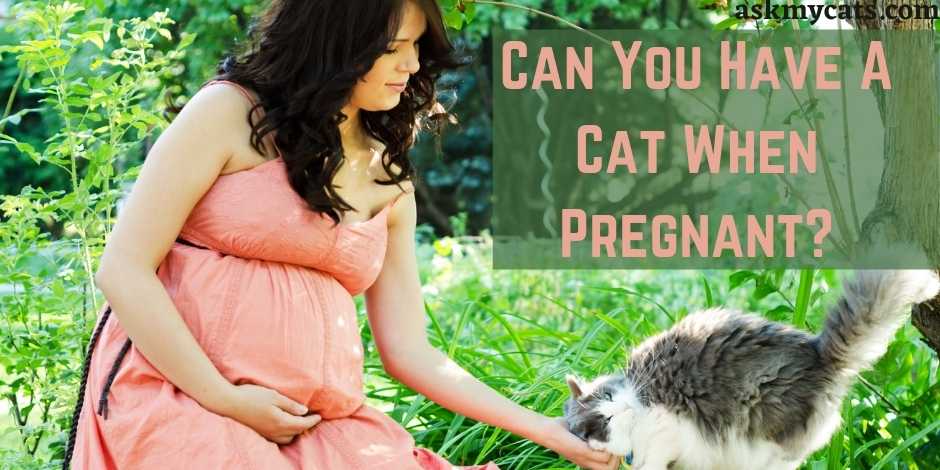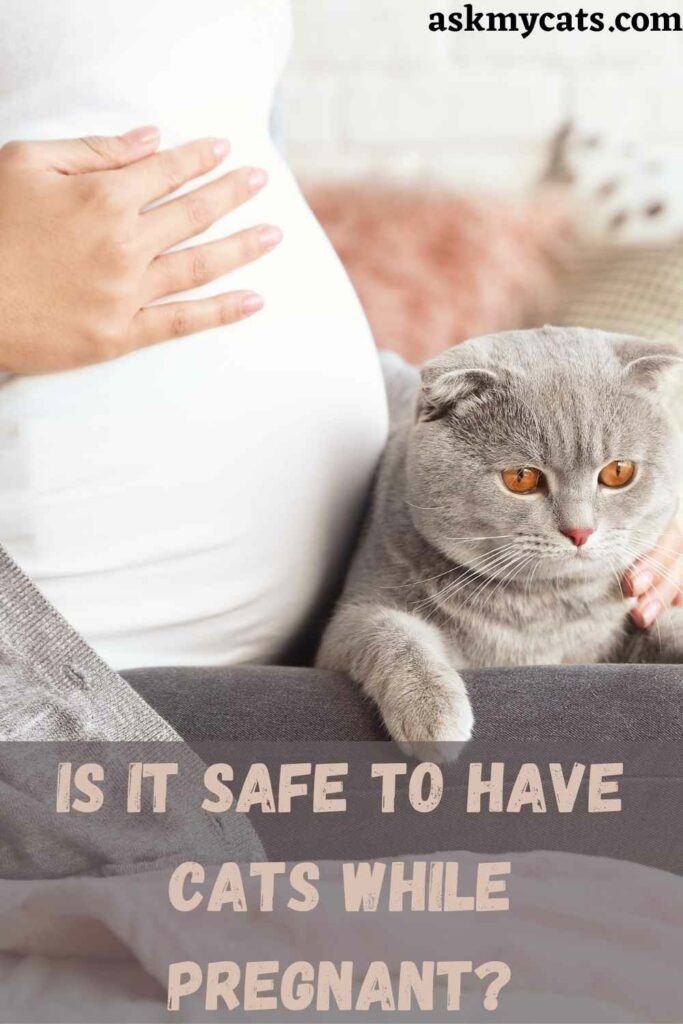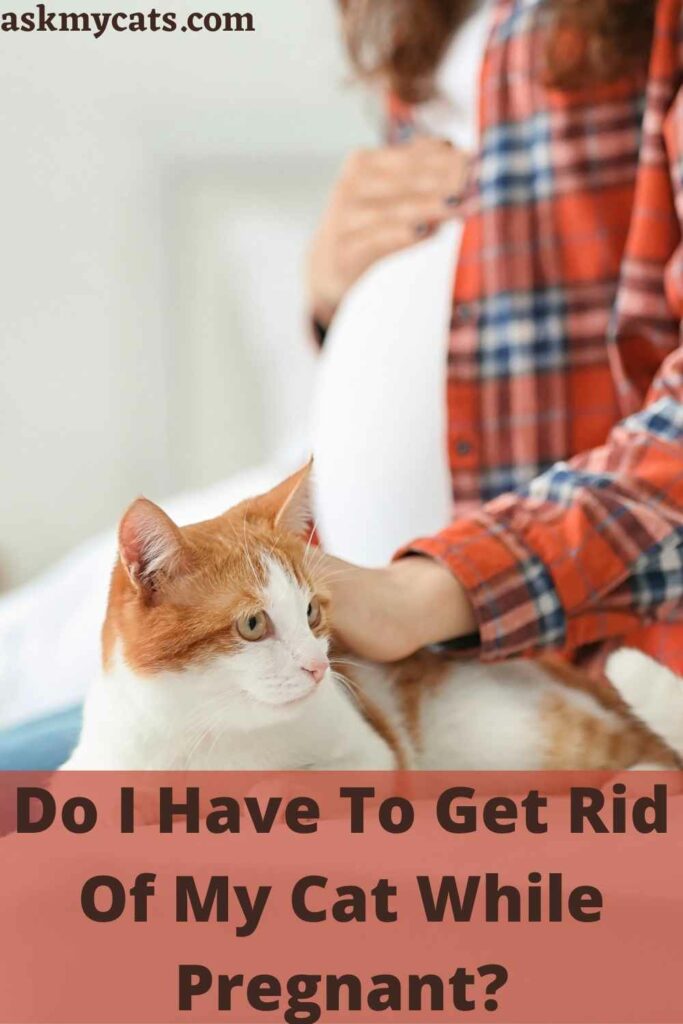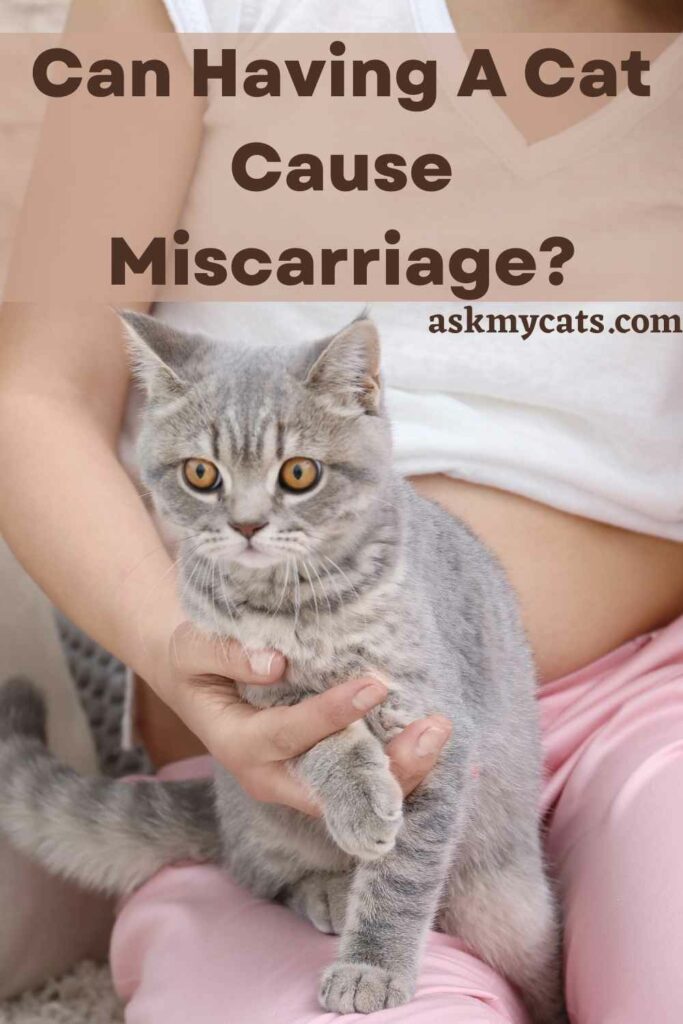Cats are one of the most popular household pets because they are sensitive and enjoy receiving affection from their owners.
They also have an intrinsic and highly developed sense of smell, as well as intuition, which can assist them in determining whether or not a person is pregnant. Cats can detect pregnancy even before you are aware of it.
However, can you have a cat when you are pregnant?
Yes, you can have a cat when you are pregnant with a few precautions. As it turns out, cats do expel a parasite in their feces that can be harmful to a fetus. However, this parasite can be contracted in a variety of ways other than through cats. And because there are numerous ways to prevent this parasite from affecting a fetus, expectant mothers do not need to avoid cats for fear of endangering their babies’ health.
This article will talk about is it safe to have a cat when you are pregnant and can what precautions you need to take to ensure your child’s safety.


Give Your Cat the Perfect Day
Get the Free Ebook!
Is It Safe To Have Cats While Pregnant?
Yes, it is safe to have cats while pregnant.

If you’ve ever been told that cats and pregnant women don’t mix, you can be confident that the person who told you that wasn’t entirely correct.
While it is true that some precautions must be taken, there is no reason to get rid of your cats while pregnant.
Rehoming a beloved pet due to pregnancy would be upsetting for everyone involved, in addition to being unnecessary.
Toxoplasmosis is the most serious concern when it comes to pregnancy and cats. The parasite Toxoplasma gondii causes it.
Toxoplasmosis in cats is usually not a serious issue. Adult cats that are healthy frequently show no symptoms at all, but potential symptoms include eye abnormalities, diarrhea, fever, difficulty breathing, jaundice, and neurologic abnormalities.
Toxoplasmosis is the most serious risk when it comes to pregnancy and cats. Toxoplasma gondii, a parasitic parasite, is the cause.
Toxoplasmosis in cats is a relatively minor issue. Eye abnormalities, diarrhea, fever, difficulty breathing, jaundice, and neurologic abnormalities are all symptoms that can occur in healthy adult cats.
If a woman has already been infected with the parasite, she will not be at risk if she is exposed to it again during pregnancy.
Women can have their exposure levels checked at the start of their pregnancy to see how concerned they should be. There’s no reason to avoid cats even if the test is negative.
To limit the risk of infection and exposure, all women need to do is take a few easy measures.
You might also like to know about Do Cats Know When Baby Is Coming
Do I Have To Get Rid Of My Cat While Pregnant?
No, you do not have to get rid of your cat while pregnant, you just need to take a few easy measures like: –

1. Avoid Cleaning The Litter
To become carriers of the disease, cats must consume infected prey, thus keeping your cat indoors is one method to protect yourself.
Make sure any meat you prepare for yourself or your cat is completely cooked.
For the course of your pregnancy, it’s best to feed your cat commercial cat food (not raw).
Because the parasite is transmitted from cats to humans through cat feces, staying away from the cat litter box is also an excellent approach to avoid contracting the sickness.
If you share a house with someone, enlist their help in cleaning the kitty litter.
If you are unable to find someone to take over the work, examine the following options.
Also, check out is it safe to breathing in cat litter when pregnant
2. Self-Cleaning Litter Boxes
You and your cat may never want to go back once you’ve become used to a self-cleaning litter box. Early variants were a little clumsy, but later designs are much more user-friendly.
For example, the ScoopFree Ultra self-cleaning litter box contains safety sensors that prevent the cleaning cycle from starting until 20 minutes after your cat has exited the box.
If your pet is afraid of the sudden noises that these boxes might create, consider an option like the. For cats who don’t like loud noises, this box was designed to reduce noise and moving parts.
Keep in mind that with most self-cleaning litter boxes, you’ll still need to clean the inside of the box and dispose of the litter trays and trash that collects in the covered compartment.
Look into a product like this if you’re worried about the trash disposal and cleaning the box. The cat feces is scooped, liquefied, and flushed by itself in this box. You’ll never have to touch the litter again.
Keep in mind that you won’t be able to use ordinary cat litter with this product. It will need to be specially designed for this self-flushing box.
3. Extra Precaution
If your cat is insistent about not using self-cleaning boxes, choose cat litter carefully. Choose a cat litter that is less likely to stick to your cat’s paws and hence spread throughout your home. When scooping, always wear disposable gloves and wash your hands afterward.
You’ll also want a dust-repellent odor-control cat litter. BoxiePro Deep Clean scent-free probiotic clumping cat litter and Boxiecat extra strength scent-free premium clumping clay cat litter are both excellent options for this.
You might be like to read about my cat keeps laying on my stomach am i pregnant
4. Scoop The Litter Box After Each Use
Toxoplasma parasites do not become contagious until they have been shed in the cat’s feces for at least 24 hours. You can reduce the likelihood of the Toxoplasma gondii parasite being transmittable by scooping the litter box after each use, or at least once a day.
5. Cat Litter Disposal Systems
Anything that successfully and swiftly keeps the mess from your litter box contained is a good idea. Litter disposal devices are a fantastic way to keep the odor and pathogens in cat excrement contained.
For example, the Litter Genie Plus cat litter disposal system uses an eight-layer bag to keep the contents of the pail safe.
If you have other pets or small children, a cat litter box enclosure system with childproof locks on the lid is a good option. One such alternative is the LitterChamp premium odor-free cat litter waste disposal system.
Women can safely be pregnant with cats in the same house if they utilize cat supplies like these. Although pregnant women and cat litter don’t mix, there’s no need to rehome your feline buddy if you take care.
Also, check out about i'm pregnant and my cat follows me everywhere
Can Having A Cat Cause Miscarriage?
No, cats cannot cause a miscarriage.

Any expecting mother’s primary concern is contracting parasites from their cat.
You may have heard that toxoplasmosis can be transmitted by cat feces.
Only cats who venture outside to pursue prey such as mice and other rodents are infected with this disease.
If you have a cat who goes outside or eats prey, have someone else clean the litter box on a daily basis.
This will keep you from coming into contact with any cat feces. Your chance of contracting toxoplasmosis is very minimal if you have an indoor cat who only consumes cat food and has no interaction with other animals.
Toxoplasmosis is a parasite infection that affects both humans and warm-blooded animals.
When the immune system is in good shape, there are few (if any) symptoms. The majority of people are unaware that they or their cats are infected.
However, if a woman is infected with toxoplasmosis while pregnant or at the time of conception, it might result in catastrophic birth abnormalities.
Raw or undercooked meat, cat feces, some garden soil, and occasionally contaminated fruits and vegetables are all places where the parasite can be found.
Is it necessary for you to give up your cat? Certainly not. While Toxoplasmosis is dangerous for an unborn child, the chances of contracting it are slim.
There are a number of ways to avoid it, and many cat owners have previously been infected and are now immune.
Can I Kiss My Cat While Pregnant?
Yes, you can kiss your cat while being pregnant.
Petting or kissing your cat will not cause infection. In fact, while Toxoplasmosis is a risk to an unborn baby, the chances of becoming infected are extremely low.
Because the organism is not spread by fur or saliva, it is extremely unlikely that you would contract toxoplasmosis by kissing your cat or being scratched or bitten by your cat.
Toxoplasmosis can, however, be contracted by eating undercooked infected meat, particularly lamb and pork. Again, this is not your cat’s fault, but rather our own lack of taste or culinary skills, and it is by far the most common way for people in developed countries to contract the disease.
Toxoplasmosis is a serious illness that can harm both cats and humans. However, contrary to popular belief, living with a cat only slightly increases your chances of contracting the disease, and with the help of simple common-sense precautions such as those mentioned above, this risk can be reduced.
However, if you have any concerns about your own or your family’s health, make an appointment with your vet and ensure that everyone is aware of the facts rather than the myths about toxoplasmosis.
Frequently Asked Questions
How do humans get toxoplasmosis?
Humans are most commonly infected with the disease through the consumption of raw meat, which contains T. gondii within tissue cysts. Direct ingestion of infective oocysts is a less common method of acquisition. Finally, transplacental transmission of the disease to an unborn child is possible if the mother contracts the disease while pregnant.
How can Toxoplasma affect my unborn child?
If you become infected with Toxoplasma while pregnant or shortly before, you can pass the infection on to your baby. You may not experience any symptoms as a result of the infection. The majority of infected infants have no symptoms at birth, but they can develop serious symptoms later in life, such as blindness or mental disability. Infected newborns can have serious eye or brain damage at birth.
Can I sleep with my cat while pregnant?
Yes, you can sleep with a cat while pregnant. The infection will not spread if you sleep with your cat. While Toxoplasmosis poses a risk to an unborn child, the chances of contracting the disease are exceedingly slim if you take the necessary precautions.
Should a woman breastfeed her infant if she had contracted a Toxoplasma infection during her pregnancy?
Yes. Toxoplasma infection is unlikely to be transmitted through breast milk in healthy mothers. While Toxoplasma infection has been linked to infants who received unpasteurized goat’s milk, no research has shown that Toxoplasma gondii is transmitted through breast milk in humans. It is theoretically feasible for a nursing woman to transmit Toxoplasma gondii to her newborn through her breast milk if she has cracked and bleeding nipples or breast inflammation within a few weeks after an acute Toxoplasma infection (when the organism is still circulating in her bloodstream). Immune suppressed women could have circulating Toxoplasma for even longer periods of time. However, the likelihood of human milk transmission is very small.
Final Words
Toxoplasmosis can be avoided during pregnancy by taking sensible precautions, and euthanizing or getting rid of your cat would be terrible for both of you. It’s far better to enjoy your cat’s affection and company during your pregnancy and after the delivery of your child.
While some cat excrement might cause serious or even fatal difficulties in a growing fetus, pregnant women do not need to avoid cats entirely. Toxoplasmosis is greatly reduced if you stay away from the litter box.
Furthermore, expectant moms should use caution not only while touching cat excrement, but also when handling raw meat. If pregnant women eat raw or undercooked meat or handle raw meat without washing their hands quickly, they are more likely to contract toxoplasmosis.
So there’s no need for the cat to pack her belongings when the happy news of impending birth is announced. Keep her inside, feed her only prepackaged cat food, and try to stay away from her litter box.
If you have any questions, ask us in the comments section.
